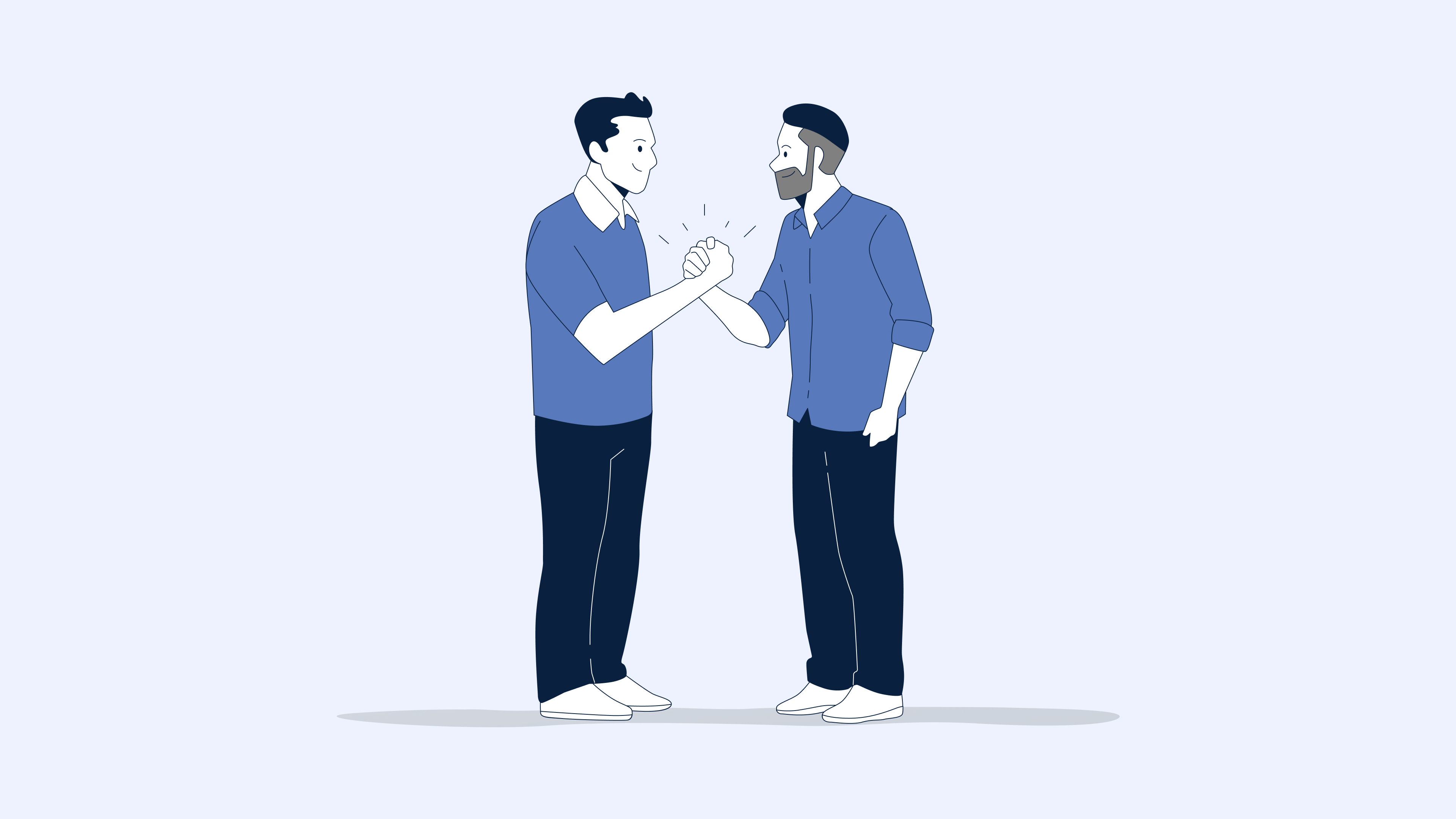- By Jasvir Biriah
- October 30, 2022
- 8 mins
What Game are you playing?
Ascot is known as one of the most sophisticated sporting events on the British calendar. A posher Glastonbury but cheaper (apparently). It's a place where litres of Pimm's ooze from the pre-prepared jars, there is every type of food you could imagine, and there is a tsunami of champagne, beer and spirits lining the bars and tables inside. People come from all walks of life dressed in their finest, and the funniest part is that most of them know nothing about racing. The biggest class leveller of a 'not-so-sophisticated' event is the sound of tuneless groups of friends singing (or whaling) to Oasis's 'Don't Look Back In Anger' as the day progresses. This oxymoron of an event was just the type of fun my friends and I were looking for.
So, a few weeks back it all became a reality and I spent a day at Ascot with some friends. Besides the fun and laughter, I wanted to share some lessons I learned from having a flutter on the horses
My 8 Lessons from Ascot:
It's always about the people you're with, and not the venue you're at. We could have been at a local pub and it would still have been fun. But, it's not to say we'd pass on Ascot either. It was another experience banked in that memory vault that spans decades.
Probabilities are fragile. Odds are odds, they are probabilities, and as we know in the equity markets even the most probable probabilities or earnings reports can still have blind spots, and the irony of improbable probabilities is that they can become a reality. We live in a world that is uncertain and along with it comes a ton of information to absorb. In context to racing, there are tips inside racetrack programs, specific opinions from friends and other punters, there are professional pundits and bookies that also have their say. Who is right? This sounds familiar to the media 'soap operas" that play out in the public markets, and we know that this type of information can be misleading when it comes to real-world outcomes.
Beating estimates say little about true value. Just like investing, the same principle could apply to horse racing. There are humans like you and I in a department whose job it is to make odds for the runners. There is a chance that there are biases, a narrative, or the race course has a sponsorship imperative, this is a different reality to the punter's thoughts. Tracks want to advertise their races as being competitive, and naturally, there will be many horses who are genuinely 100-1 outsiders, but there are some horses that can be mispriced and can exceed a 30-1 price intentionally or by chance. Pricing estimates have fragility baked into them and this makes conviction behind backing a favoured horse fragile too, no matter the favourable odds.
Know the game you're playing, and play it well. You succeed in a game where you know it well make clear decisions and take accountability for your actions. Never follow the crowds for average outcomes. The average could be seen as a protection against our own ignorance, a safe place to stick with the masses, and the outcomes can still be wrong. Say, that you take an easy 2-1 favourite for two races and win, then on the third race you lose all your winnings when you decide to increase your betting size. This is where it becomes a gamble, a game where you chase as opposed to controlled decisions. Know the game you're playing stay consistent (if you want to of course), and never bet more than you can afford to lose. (I can hear you at the back, what a party pooper, hey?)
Handicapped underdogs can win. Just like with sports teams, people and businesses, I love the long shots, the outsider that no one thinks will win. These are the types I cheer for. If you go to the races long enough you will find a 66-1 horse can win, and it's euphoric if it's the horse you bet on. The kick of dopamine is incredible. No matter how poorly the horse performed in the past, how bad of a jockey was riding the horse, or how great the competition was, as long as the horse is in the race it always has a chance to win.
Never think you are the smart money, we are all dumb money with a small chance of success. The only people that truly win are the bookies (the house). Thinking we're smart money is linked to ego, even if l've had successes in life, business, investing, academia, or sports, it doesn't mean I'll be a successful betting man. This is exactly the arrogance the betting environment is built for, and that's to profit from our dumb money.
You must avoid ruin. Stay in the game. The first thing that a long-term investor thinks of is risk and survival. The same underlying idea can apply to binary short-term outcomes such as win or lose. In this case, if I want to continue having fun it's not about winning and making money, it's more about risk tolerance and being content about losing the stake you bet. This means staying in the game for longer. When you have lost half of your capital, some may start to chase the losses and dig a deeper hole and what the gambler hates is the thought of accepting bets that are half the size of their original bets. This can lead to destruction.
Predicting with certainty will eventually kill your chances of staying in the game. I've got to face the facts I'm not very good at predicting or picking horses. That's always my starting point. Sure, I did everything that I thought was smart, I revelled in the emotion of trying to be a 'professional" punter with my booklet and a pen and paper, but I knew I was kidding myself. Always have some Intellectual humility. Instead, have some fun.
My boring strategy and the pot of gold
Anything that has money on the line always pulls on the long-term investor's brain of mine. The one thing I do understand is what makes a bet fragile, and on the contrary, what makes a bet anti-fragile.
The concept of optionality behind a convex payout is a framework that is right up my street. So I stuck to betting small amounts consistently on the handicapped outsiders of the race, in my case, they were at roughly between 30-1 and 66-1 in every race, and the huge bias was linked to the sound of the horse's name, to my mind, the weirder the better. The key to this playing out how I wanted was consistency and discipline, and to be honest, it's a super boring strategy to sustain, but it's where I felt at home and enjoyed every bet. This strategy would ensure I'm still around playing the same game well into the night.
The Biggest Lesson of them all
Yes, my strategy was boring, I was playing out my own game, and by the 6th race one of my outsiders did come in and I was chuffed at the outcome tripling what I had originally bet. However, this isn't a pathetic attempt to gloat about how smart I was, or boasting about my triumph, I was merely testing what I believed in and it happened to pay off, nothing more, nothing less. What stuck with me was the simple fact that a much bigger storyline playing out.
The truth is, who wants to be disciplined when it comes to betting at Ascot, isn't it a day out to have some fun?
The real story of the day was about my two friends who couldn't care less about strategising on horses. They were as clueless as me. They were laughing their way to the betting stalls and having fun in the process. Guess what? It just so happened they won the biggest win of the day at Ascot. It was an incredible outcome and it could only have happened with these two friends of mine. Rather than the late Queen's refined voice, it reminded me of a scene out of "Only Fools and Horses", and all I could hear was Del Boy saying:
'We've only gone and done it Rodney'.
It was a bet none of us will ever forget.
The primary objective at Ascot was being with friends and having fun, we should never kid ourselves we'll win a fortune, the cash in my hand was written off at the start of the day, and it was something I could afford to lose. I never wanted to engage the gambling part of the brain to ruin the day, it's all about fun for fun's sake, the kind of fun that releases the weighty moral reasoning behind strategising every horse race. Yes, I strategised, but I was playing a game with myself rather than any serious intent. In the end, it boils down to being in good company, being present, being bold and surprising yourself in the process. If the stars align you could find yourself winning too.
Until next time Ascot, I will see you soon.
Author’s Disclaimer
The information contained in this post is for educational purposes only. All written content on this website are the opinions of the author. If shares or strategies are discussed, they should not be deemed as a recommendation to buy or sell any share, product or fund. We may have an interest in a strategy we discuss, and our advisory clients may be beneficiaries of our proprietary methodologies, investment tools and advice. Consult your advisor before making any buying or selling decisions in the public markets. Past performance provides no guarantee for future returns.



